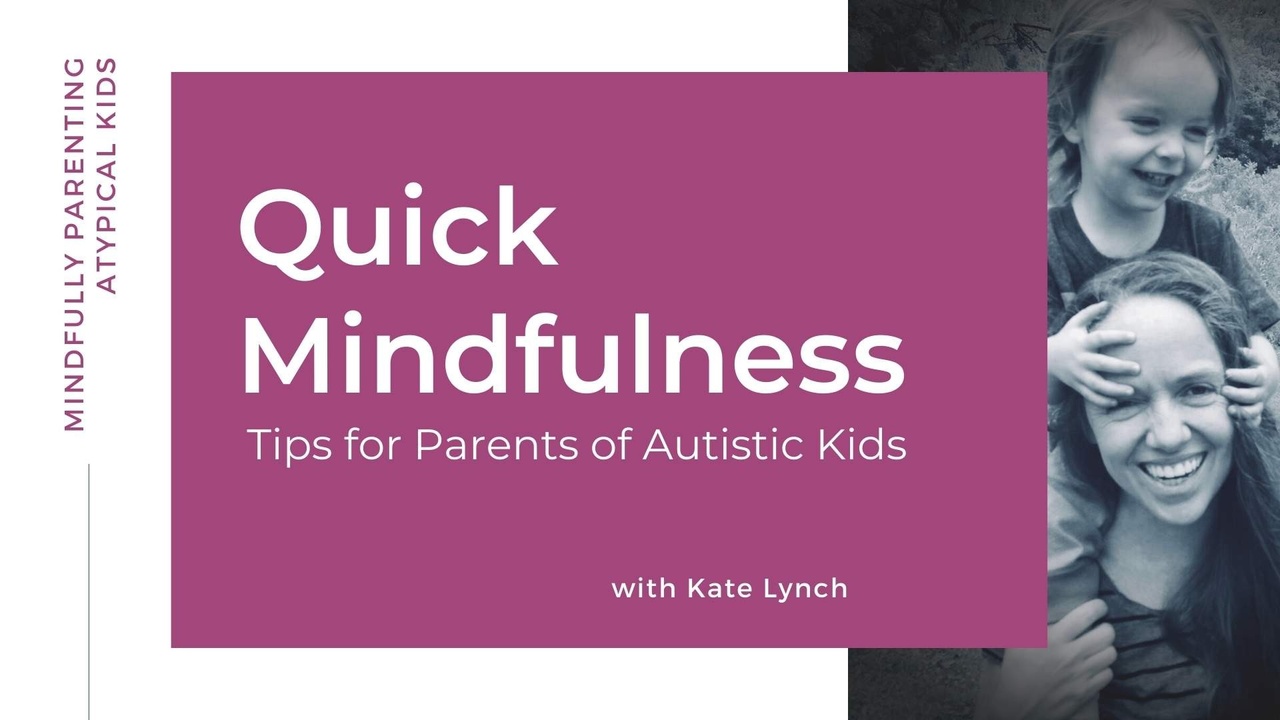
You’re in the right place if you feel like you have to hold it all together and be ready for anything, all the time.
If you’re stressed out and know you need solutions, but you just don’t have time, I get you. Mindfulness has helped me be more present and patient with my family. You can apply these practical calming tools to the life you have right now.
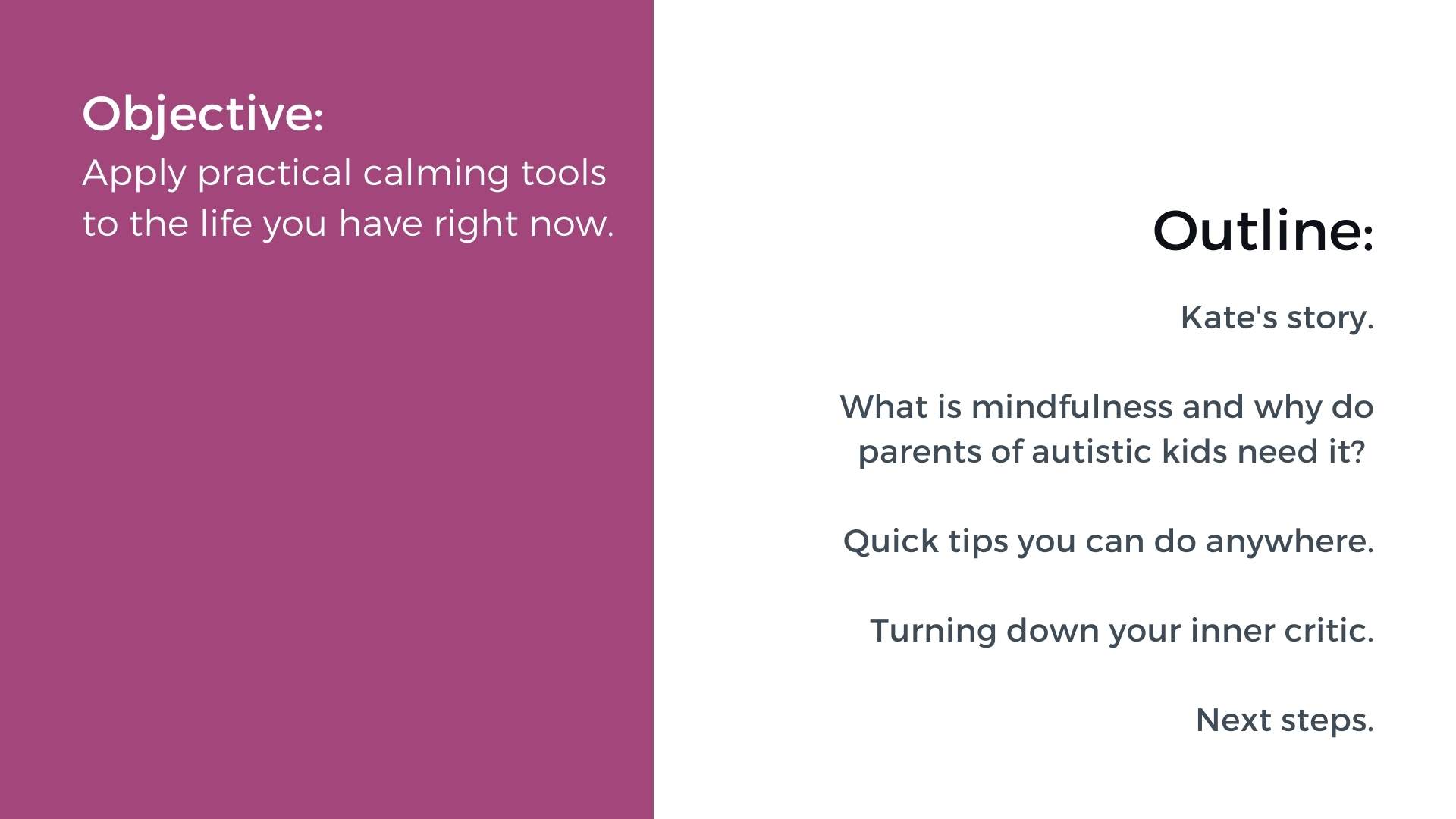
Before I tell my story, let's start with a mindfulness practice to get a baseline...
Check In With Your Relationships:
Ask yourself the following questions without expectation or judgment:
- What is my relationship with my breath?
- What is my relationship with my body?
- What is my relationship with my mind?
When I Heard ‘Surface Pressure’ from ‘Encanto’ it Felt Like an Anthem for Parents of Intense Kids
Have you seen ‘Encanto?’ Have you heard the song by Lin-Manuel Miranda?
“If I could shake the crushing weight of expectations
Would that free some room up for joy
Or relaxation, or simple pleasure?
Instead we measure this growing pressure
Keeps growing, keep going
'Cause all we know is
Pressure like a drip, drip, drip that'll never stop, whoa…
Who am I if I don't have what it takes?
No cracks, no breaks
No mistakes, no pressure”
Luisa’s longing is so relatable — to relax and make space for pleasure — and I also relate to the internal pressure to never mess up, never admit defeat, never let anyone down, and ensure no one has a meltdown.
The thing is, we will all crack eventually, even Luisa. So please, shake off those expectations. Learn some quick mindfulness tools. Free up some room for joy!
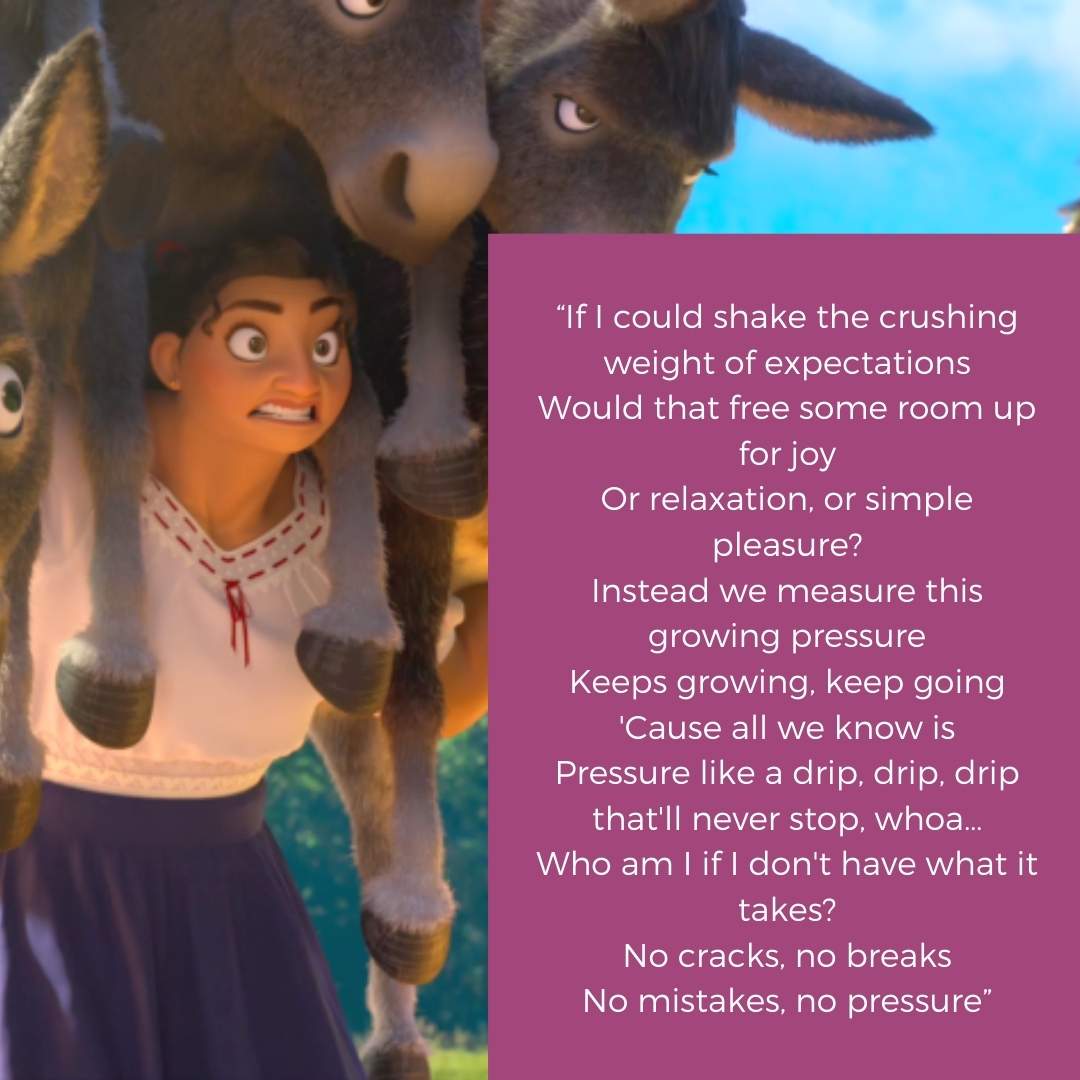
I’m a parent of an 11 year old with autism and ADHD. For 20 years I’ve been an inclusive yoga and mindfulness teacher. I’m also a mindful parenting mentor and an author.
I was teaching for 10 years before I had my son. Yoga and mindfulness have always helped me with my anxiety.
I was isolated, overwhelmed, and denying myself basic needs like sleep, movement, and nutrition. I expected myself to function calmly and kindly under extreme pressure without strategies or support.
I lost myself in the process of scheduling all the therapies, trying to implement all the interventions, and buying all the sensory supports.
I crammed my brain with information and became a more effective advocate. I met other parents like me and felt supported. First, I had to calm down. I wasn’t able to take in information or reach out for connection until I was out of crisis mode.
- I had trouble coping emotionally.
- I felt responsible for my son’s challenges. That led to guilt and anxiety.
- I felt a lot of resentment that parenting my kid was so hard.
- The anxiety, resentment and guilt turned into physical tension.
- The tension accumulated and led to rigidity, emotional reactivity and scattered thoughts. I even started to develop physical pain.
- When I carried around tension, I was a crappier parent.
- Numbing my overwhelm didn’t help for long, and I felt worse about myself afterwards.
I Was Hyper-vigilant
It is exhausting to “hold it all together” as a parent. There’s nothing bad or wrong with being prepared, and of course we need to do what is necessary to help our kids.
The thing is, when we ONLY worry or see what needs fixing, we miss the good things happening in the moment.
It isn’t sustainable. It messes with our nervous systems.
We aren’t designed to be on edge ALL THE TIME.
The cool thing is, sometimes issues resolve themselves without us doing anything. This can be hard to accept if you are hyper-vigilant like me, but it is true.
Simple Mindfulness Got Me Out of Crisis Mode
I had to reprogram my nervous system. I turned my focus inward. I realized the only one I can truly control is myself, so I decided to release my tight grip just a little.
I remembered my practice, but still didn’t have much time. I distilled what I knew into quick, simple tools that I could use anywhere, any time.
Before we learn, connect or advocate: We first need to calm down. My mindfulness practice has helped me become more present and patient with my family, and with myself, most of the time.
That’s what I want to share with you. A regular mindfulness practice can build hardy neural pathways that you can rely on during a crisis. Then, your kid can rely on you to help them co-regulate. If you aren’t motivated to practice mindfulness for yourself, do it for your kid.
What is Mindfulness?
Mindfulness is paying attention, on purpose, without judgment.
Why mindfulness helps in challenging parenting circumstances:
- Mindfulness helps reduce my anxiety. When my attention is in the present, I am not worrying about the future or ruminating about things that happened in the past.
- Mindfulness doesn’t fix my problems, but I have more clarity and confidence to find solutions, discern what is truly important, and be a grounding influence on my family.
- Mindfulness has helped me see that I have more choices in how I respond. The decisions I make are coming from my values instead of from fear.
- Being self-regulated as a parent is essential for co-regulating with my child.
Parents of Autistic Kids Need Mindfulness
Mindfulness is a gift we give ourselves and our families. If you are in a crisis, would you rather have a Chihuahua or a Saint Bernard by your side?
- We can turn down our inner critic, and the outer judgment doesn’t bother us so much.
- When we are self-regulated, patience arises within us without trying.
- As we practice mindfulness, we become less reactive.
Quick Tips You Can Do (Almost) Anywhere:
Yawn
Yawning signals to your body that you are safe enough to relax. When we’re under threat, we don’t yawn. When you yawn you give your nervous system a tune up by activating your vagus nerve. It can help you return to a safe and social state.
Reach up, stretch like a cat and pretend to yawn until you actually do yawn. Get your whole body involved in the yawn. Exaggerate rather than suppressing your yawn.
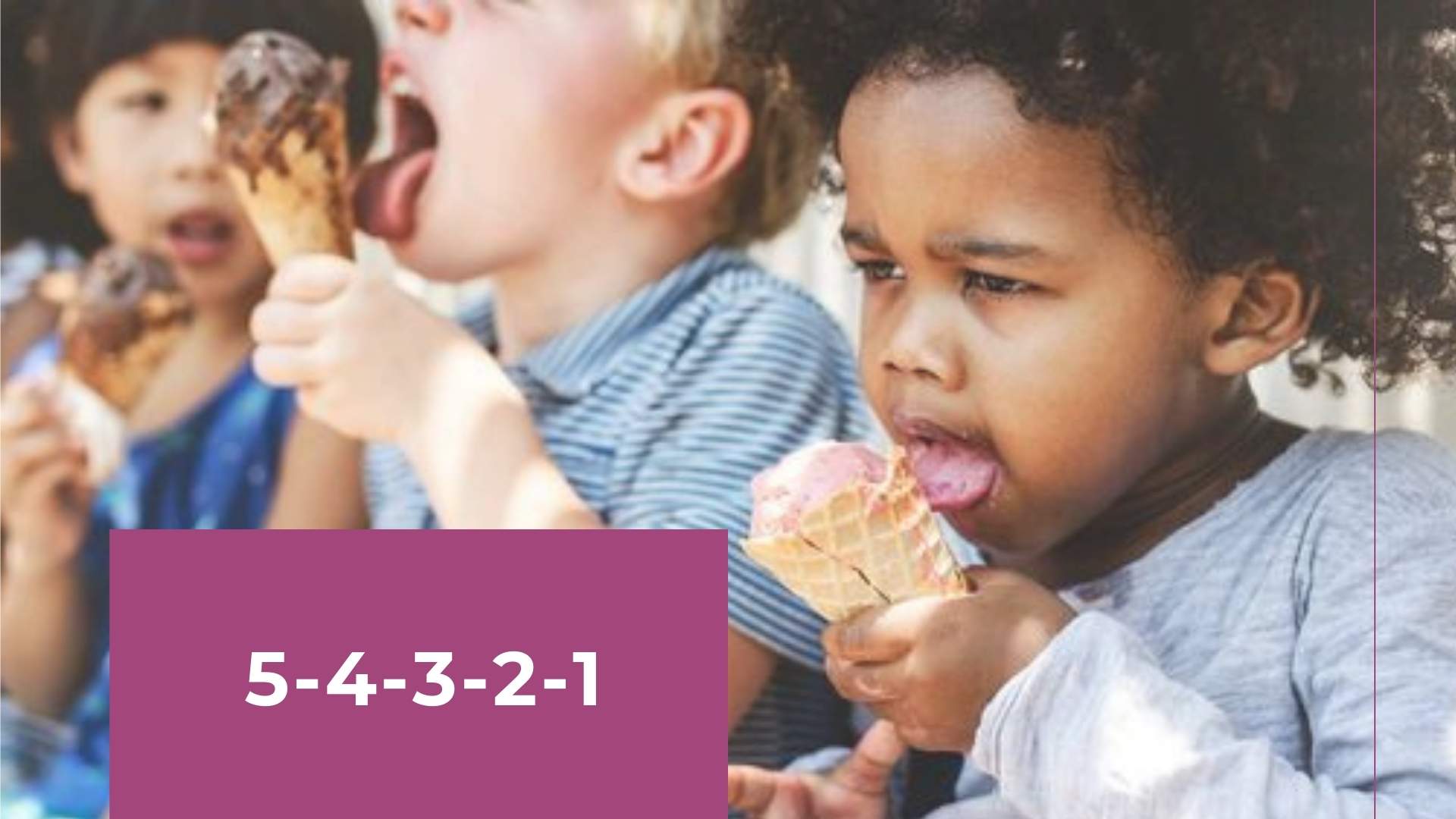
5-4-3-2-1
It can be grounding to orient yourself to your senses. I find the result is awareness of the present moment. This practice can help you normalize what’s coming in through your senses, so you can choose how you react to whatever environment you’re in. We are NOT JUDGING what we observe.
- Look around and find 5 things you can see…
- Then, list 4 things you can hear…
- 3 things you sense on your skin…
- 2 things you can smell, and…
- 1 thing you can taste.
If one of your senses is less dominant, you can change its order in the list. When I do this practice, I silently make a list. If you’re doing this with kids, they love to call out each thing they sense, and make a list together.
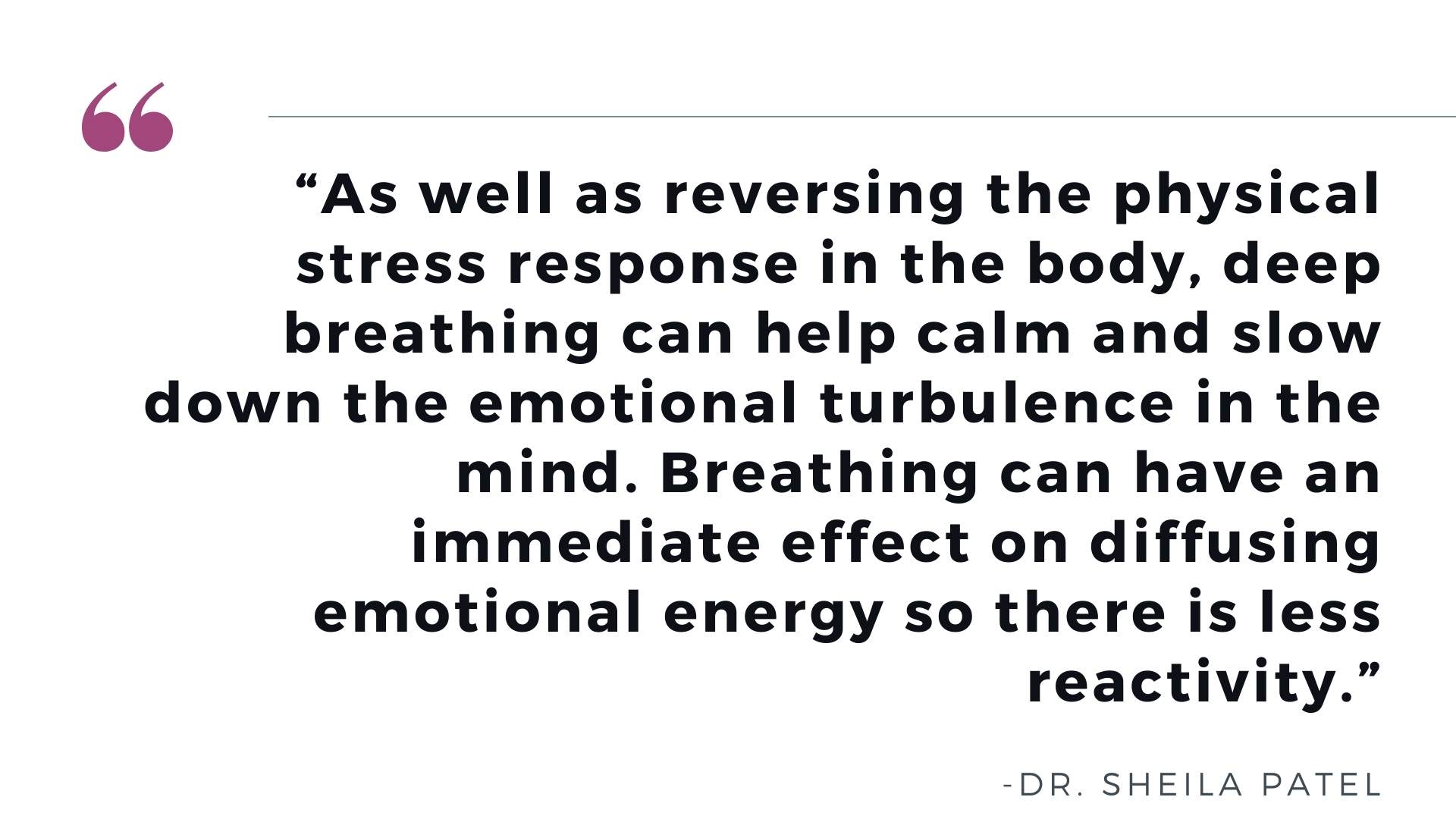
Long Exhale
- Put a hand on your belly or heart.
- Watch the flow of your breath as it goes in and out. Never force any breathing practice. Return to your natural breath if you feel spacey.
- Imagine you are fogging a mirror as you slowly exhale through your nose or mouth.
- Begin mentally counting to 4 as you inhale, 4 as you exhale.
- Counting to 4 as you breathe in, softly fill your belly like a balloon.
- Counting to 6 in your mind, slowly deflate the balloon, breathing out.
- Gradually lengthen your exhale until you are breathing in for 4 counts and out for 8 counts.
- Repeat for 5–10 counts, or as long as you like.
- Take twice as long to exhale as you do to inhale.
My Transformation From Enmeshed to Emotionally Available
The success story I share most is my own experience with my son. I went from really joining him in his every upset, to being lovingly with him in his feelings, but not enmeshed.
My son had a meltdown recently, and I was able to breathe and stay steady for him. I modulated my voice and waited for him. I was available to calmly respond to him, rather than reflexively react.
I held space for him without falling apart. We were both able to recover easily after his storm passed. We even laughed together.
The transformation I offer is the ability to stay calm and present during the most challenging parenting moments, no matter how intense your kid is. The mindfulness tools I teach are quick and simple yet instantly helpful. I would rather a parent take one conscious breath a day and think, “That was worth the 15 seconds it took,” than judge themselves for not practicing. The last thing I want your mindfulness practice to be is another “should.”
I am reacting less and less often, despite my kid’s explosive nature. Using the same practices I’m teaching you, I am able to be his emotional anchor, and we both recover from his meltdowns more easily. Even though he’s in middle school now and I make him “cringe,” we are closer than ever and I feel a ton of joy in my parenting life. I take his mood swings less personally and I don’t give a sh*t what strangers think of either of us anymore.
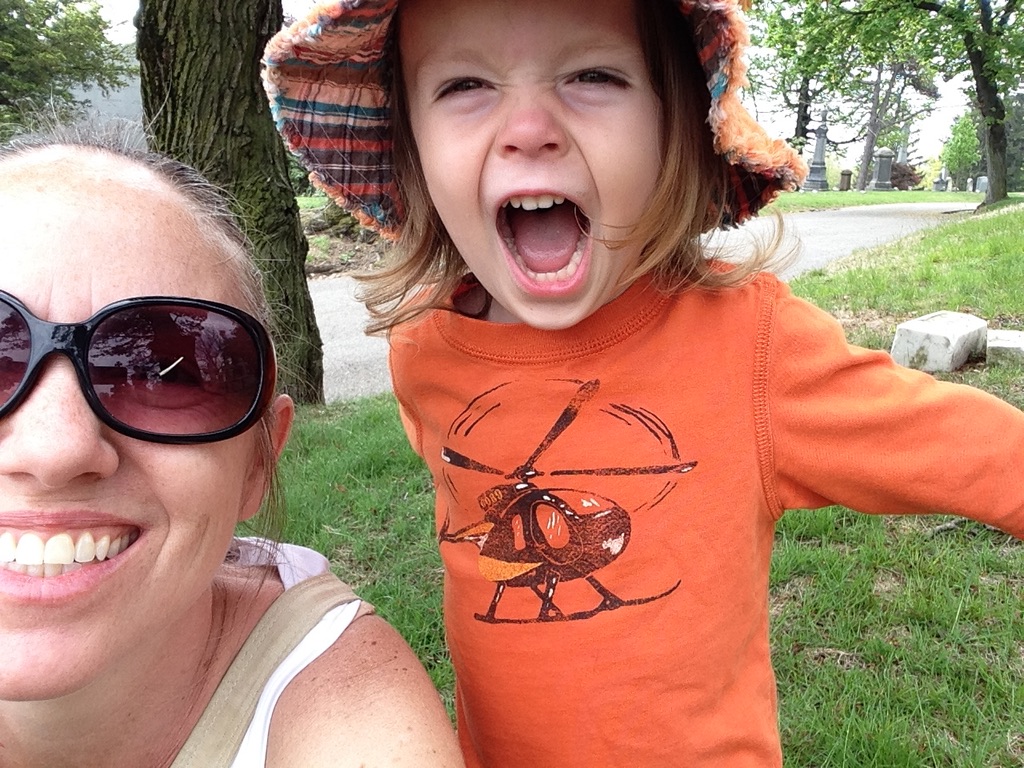
Body/Mind Check-In
Let's repeat this self-awareness practice to track any changes, without judgment or expectation.
- What is my relationship with my breath?
- What is my relationship with my body?
- What is my relationship with my mind?
Turn Down Your Inner Critic
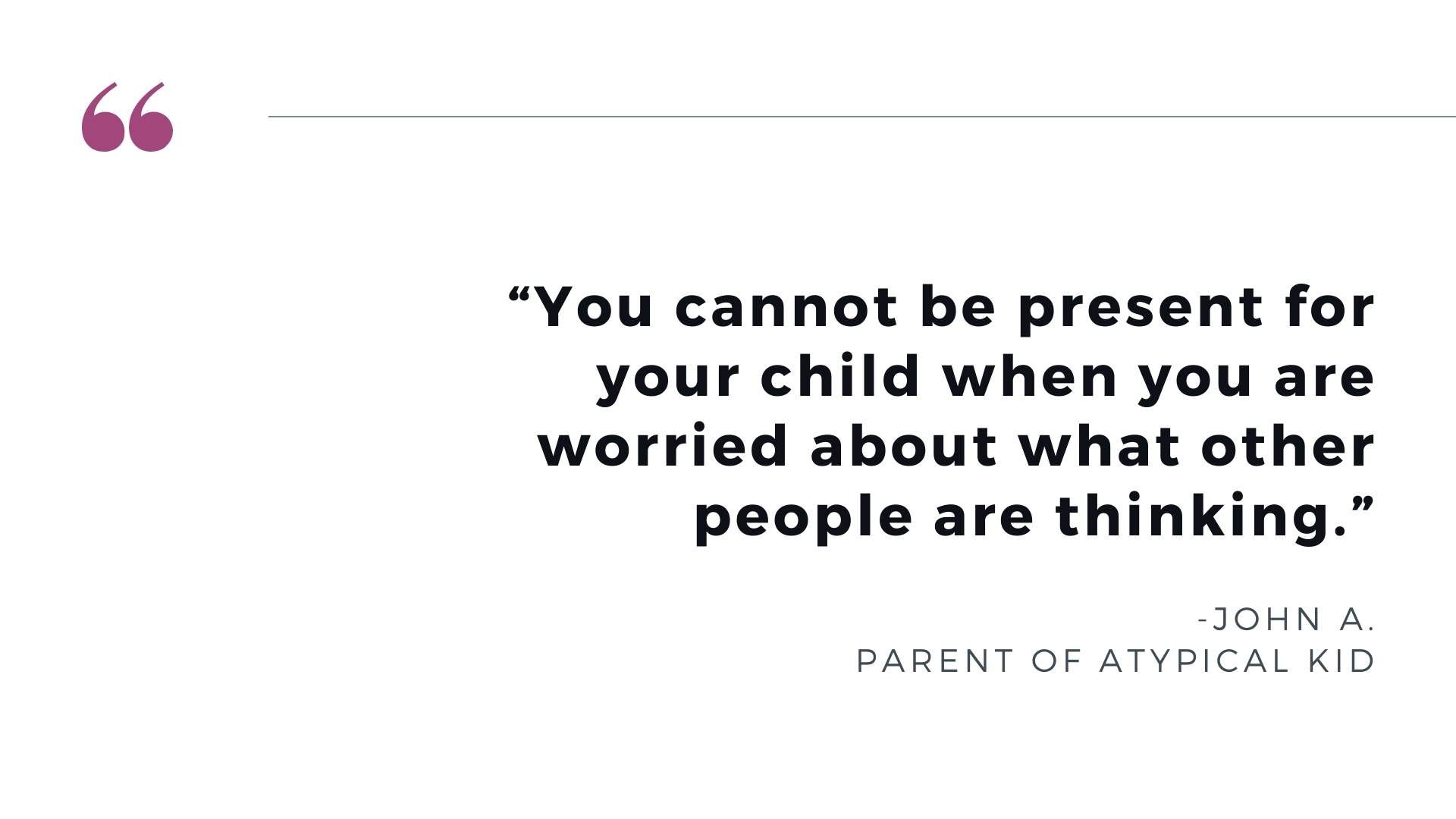
Accepting the Moment
There are going to be challenges. When you are present with reality without turning away, and can find contentment in this moment just as it is, you will have more energy to put into the next moment. What if you could truly accept your child exactly as they are in this moment? What if you could be kind to yourself no matter what chaos was happening around you?
- Think of a recent challenging time you had with your child.
- Experience the felt sense of that moment without trying to change it.
- Place a hand on your heart.
- Repeat to yourself:
- “This is a challenging moment. It will pass.”
- “May I be kind to myself no matter what’s happening around me.”
- “May I accept this moment exactly as it is.”
- “May I accept myself in this moment exactly as I am.”
- “May I accept my child exactly as they are in this moment.”
Self Massage
This simple self-massage can be done sitting in a chair. By reaching across your midline to rub your opposite arm, you are not only bringing awareness to your body, but also stimulating connection between your brain hemispheres.
- Give yourself a hug. Breathe into the squeeze.
- Stroke down your outer arms a few times.
- Squeeze the web between one thumb and hand.
- Rub, stroke or tap from your hand up to your neck.
- Squeeze your “shrugger” muscle.
- Repeat 3–5 on the other side.
- Scrape your fingers through your scalp.
- Tap or rub around your face and jaw and under your collarbones gently.
- Lovingly rub your belly and your lower back.
- If it is comfortable, finish by crossing one ankle over your opposite thigh so you can reach your leg and foot and rub them.
- Repeat on the other leg.
Affirmation
Repeat a short phrase that you resonate with, which reminds you of your parenting values, like: “We’ve got this.” “It’s not an emergency.” Or a single word: “Patience” “Kindness” “Love”. Choose yours. Say it out loud. Write it down and post it up where you will see it often.
Body/Mind Check-In
Complete a final round of the self-awareness practice to track any further changes. Ask yourself:
- What is my relationship with my breath?
- What is my relationship with my body?
- What is my relationship with my mind?
Actionable Mindfulness Habits
For best results, PRACTICE ONE mindfulness skill. Pick one that you like. Repeat it over and over.
Tie the new habit to a habit you have already established. Write down which one you will practice, and what the trigger will be in your daily routine.
I try to put self-care first, otherwise it is on the back burner forever. Sometimes that means other things won’t get done.
Sneak In Mindfulness
You can simply bring mindfulness into daily tasks, by catching yourself thinking about past or future and bringing yourself back to what you are doing. Here are some things I do when I don’t have extra time to practice:
- Mindful breathing while cooking.
- Listening for pleasure while driving.
- Humming.
- Self-massage break at the computer.
- Going to bed early and listening to a meditation before sleep.

If you practice mindfulness and still don’t experience any benefit, don’t assume the problem is you. Try something else. Does it bring you more ease or joy in the moment, or is it another thing to check off the list? Find something you resonate with, and do that one thing until it becomes as reflexive as scratching your nose.
You've got this!
Hi, I’m Kate, parent of an amazing atypical kid, inclusive yoga teacher, mindful parenting mentor, and author.
This post was inspired by my presentation on Quick Mindfulness Tips for Parents of Autistic Kids at the Autism Parenting Summit, 2022.
I believe we can eradicate shame in one generation, so that our kids grow up thriving in an inclusive, equitable and empathetic world. I believe focusing on your own self-care will bring your whole family more harmony and joy. I can’t wait to walk this path alongside you, sharing the tools that have helped me feel calmer.
Here's how you can work with me...
- Start by downloading the Mindful Meltdown Cheat Sheet to get 4 quick mindfulness strategies, and my meltdown essentials. If you have a kid with an IEP, 5 Steps to Calm & Successful IEP Meetings will help ease your anxiety as you go through the process.
- Then sign up for 5 Days to Calmer Kinder Parenting.
- If you'd like more personal and individualized support, I offer 1-1 Mindful Parent Mentoring to help you integrate mindfulness strategies into your parenting.
I write to connect, so I’d love to hear from you! Comment below and I’ll write back. Want to hear more about my attempts to parent joyfully as I navigate the fog of ableism that pervades our culture? Subscribe below.
Stop Walking On Eggshells!
Gentle yoga to release your stress and shift your mindset about struggle.
If you get your buttons pushed often by other people's issues, you may be hypervigilant. You might feel it in your body as clenching, tension, or chronic pain.
You'll become more grounded in awareness of your body.




